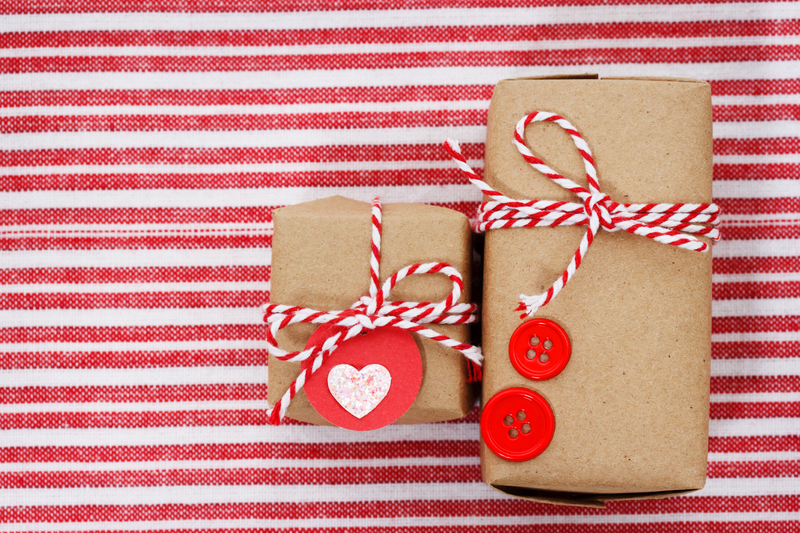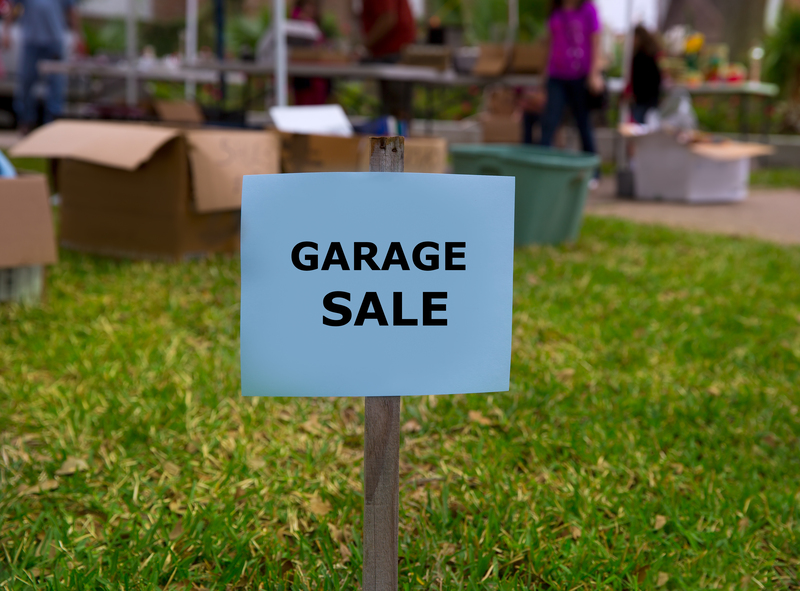Unlock Peace with Decluttering and Minimalist Practices
Imagine waking up in a serene, organized space where every item has a purpose and brings you joy. This is the essence of minimalism and decluttering--a lifestyle that nurtures peace, clarity, and well-being. Let's dive into transformative minimalist practices to create a peaceful sanctuary at home and within.

What Does It Mean to Unlock Peace Through Decluttering?
Unlocking peace with decluttering and minimalist practices involves more than just tidying up your living spaces. It's about curating your environment to reflect what truly matters to you. By letting go of excess, you make *room for tranquility, intention, and fulfillment*. Embracing a minimalist lifestyle also helps to reduce stress, improve mental clarity, and enhance overall happiness.
Understanding Minimalism: More Than Just Having Less
Minimalism is not about deprivation or living with the bare minimum. Instead, it's a conscious decision to focus on essentials, value experiences over possessions, and prioritize quality over quantity. When you practice minimalist living, you deliberately eliminate distractions, making space for what truly enriches your life.
Decluttering is the process of removing unnecessary, outdated, or unloved items from your surroundings. Together, these practices form a powerful toolkit for achieving inner and outer peace.
Benefits of Decluttering and Minimalist Practices
- Reduces Anxiety and Stress: An organized environment promotes a calmer mind and reduces overwhelm.
- Improves Focus and Productivity: Fewer distractions allow you to concentrate and complete tasks efficiently.
- Enhances Creativity: Clean, clear spaces spark creative thinking and problem solving.
- Boosts Overall Well-being: Minimalism supports emotional health and encourages mindfulness.
- Saves Time and Money: Less to clean, maintain, and purchase means more resources for meaningful pursuits.
How Clutter Affects Your Peace of Mind
Clutter, both physical and mental, is a significant source of stress and distraction. Studies show that excessive belongings can increase cortisol levels--the stress hormone--resulting in anxiety, fatigue, and reduced productivity. Cluttered surroundings can also cloud your judgment, impair decision-making, and disrupt restful sleep.
In contrast, a minimalist environment can transform your mental state, bringing clarity, calm, and confidence. By releasing what no longer serves you, you signal to your brain that you have control, fostering a sense of empowerment and peace.
The Psychology Behind Decluttering and Minimalism
Decluttering and minimalist practices tap into core psychological needs--autonomy, competence, and relatedness. When you declutter, you make intentional choices, which boosts confidence, reinforces competence, and helps you focus on what enhances your relationships and happiness. Minimalist living is a form of self-care and respect, allowing you to live authentically and in harmony with your values.
Step-by-Step Guide to Decluttering for Inner Peace
1. Set Your Intention
Why do you want to declutter or live a minimalist lifestyle? Defining your motivation--whether it's peace, freedom, health, or happiness--creates a meaningful vision and keeps you inspired throughout the process.
2. Start Small
It's easy to feel overwhelmed by a big decluttering project. Begin with one drawer, closet, or room. Celebrate every small victory. This will build momentum and reduce the feeling of overwhelm.
3. Assess and Sort
Pick up each item in the area you're decluttering and ask yourself:
- Do I use this?
- Does it bring me joy or serve a purpose?
- Would I buy this again?
Sort items into four categories:
- Keep: Essential, sentimental, or regularly used items.
- Donate: Items in good condition but no longer needed.
- Recycle: Items that can be responsibly recycled.
- Discard: Broken, expired, or useless items.
4. Organize and Simplify
After decluttering, organize remaining items by function and frequency of use. Clear countertops and surfaces to foster a sense of openness. Use storage solutions like baskets or boxes, but avoid hiding clutter--if you don't need it, let it go.
5. Establish Minimalist Habits
Maintaining peace with minimalist practices is an ongoing process. Try the "one in, one out" rule: for every new item you bring home, remove one. Regularly review your belongings to ensure they still align with your needs and values.
Decluttering Beyond the Home: Digital and Mental Minimalism
Digital Decluttering for Peace of Mind
Clutter isn't limited to physical spaces--our digital lives can also become chaotic. Too many notifications, apps, files, and emails can overload your brain. Digital minimalism is about streamlining your use of technology to reduce digital overwhelm and reclaim your attention.
Practical steps for digital minimalism include:
- Organize your desktop and folders
- Unsubscribe from spam or unnecessary newsletters
- Delete unused apps and files
- Set apps to "do not disturb" during focused work or downtime
Mental Decluttering: Free Your Mind
Mental clutter can manifest as worries, lingering tasks, or information overload. Reduce it by:
- Practicing mindfulness and meditation
- Journaling to process thoughts and intentions
- Focusing on one task at a time (single-tasking)
- Setting boundaries for social media and news intake
Minimalist Practices for Everyday Peace
Value Experiences Over Possessions
Minimalism encourages us to invest in life's richest moments rather than fleeting possessions. Prioritize relationships, growth, and memorable experiences, which foster deeper fulfillment and lasting happiness.
Curate Your Environment Intentionally
Each item in your home should earn its place by serving a purpose or bringing you joy. Surround yourself with things that inspire calm, beauty, and comfort.
Embrace Slow Living
Minimalism goes hand-in-hand with the slow living movement, which values quality, presence, and thoughtful intention. Savor daily rituals, enjoy fewer but more meaningful social engagements, and spend time in nature.
Practice Gratitude and Contentment
Peace grows from appreciating what you already have. Practice gratitude daily--through journaling, meditation, or conversation--to nurture a contented mindset regardless of how much (or how little) you own.
Overcoming Challenges: Decluttering Roadblocks and How to Solve Them
- Emotional Attachments: Letting go can trigger guilt or loss. Take photos or write about the memory associated with an item before releasing it.
- "Just in Case" Thinking: If you haven't used an item in over a year and it's easily replaceable, it's safe to let it go.
- Lack of Time: Dedicate just 10-20 minutes daily to decluttering and see big results over time.
- Family Resistance: Communicate the benefits and start with your own spaces to inspire others.
Minimalism for Every Lifestyle
Decluttering and minimalist practices aren't one-size-fits-all. Whether you're a busy professional, a parent, or a student, you can tailor minimalism to your needs. The key is to create intentional systems and rituals that work for you.
- For Families: Involve children in decision-making, keep shared spaces organized, and designate "homes" for items.
- For Small Spaces: Maximize vertical storage, choose multi-purpose furniture, and keep decor simple.
- For Renters: Use portable or temporary storage, and focus on minimalist decor that's easy to adapt.
Minimalist Style Tips
- Stick to a neutral or calming color palette
- Invest in well-made, versatile pieces
- Let natural light and space become focal points
- Use plants to bring life and serenity into your home

Maintaining Peace: Sustainable Decluttering and Ongoing Minimalism
Unlocking and sustaining peace through decluttering is an ongoing journey. Regularly schedule time to assess your home and mind for creeping clutter. Seasonal or monthly check-ins can keep your environment--and spirit--light, focused, and peaceful.
- Donate or discard items as you bring in new ones
- Hold family decluttering challenges
- Use reminders on your phone or calendar for monthly tidying sessions
Remember, minimalism is a tool--not an end goal. Its real value lies in freeing mental and physical space so you can pursue your life's true passions in a peaceful, intentional manner.
Conclusion: Transform Your Life--Unlock Inner Peace with Decluttering and Minimalist Living
Decluttering and embracing minimalist practices are powerful ways to simplify your environment, deepen self-awareness, and find tranquility in all aspects of life. By prioritizing peace, prioritizing what you love, and releasing what you don't, you'll create not only a harmonious home but also a more mindful, joyful existence.
Start your journey today--clear the clutter, simplify your life, and unlock the peace you deserve with minimalist living.
Key Takeaways:
- Decluttering and minimalism foster peace of mind and mental clarity
- Start small and be intentional with each step
- Curate your surroundings and digital spaces consciously
- Practice gratitude, slow living, and value experiences over things
- Minimalism is flexible--adapt it to suit your unique lifestyle
Make room for peace. Begin today, and transform your life through decluttering and minimalist practices.